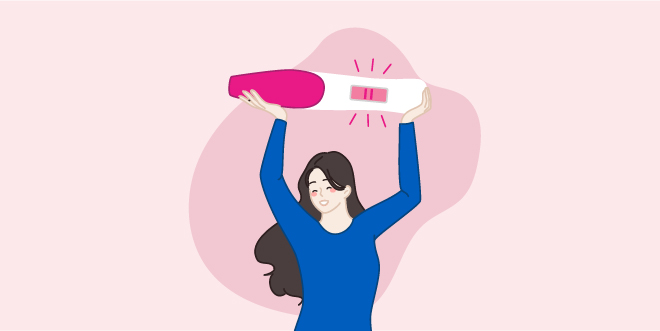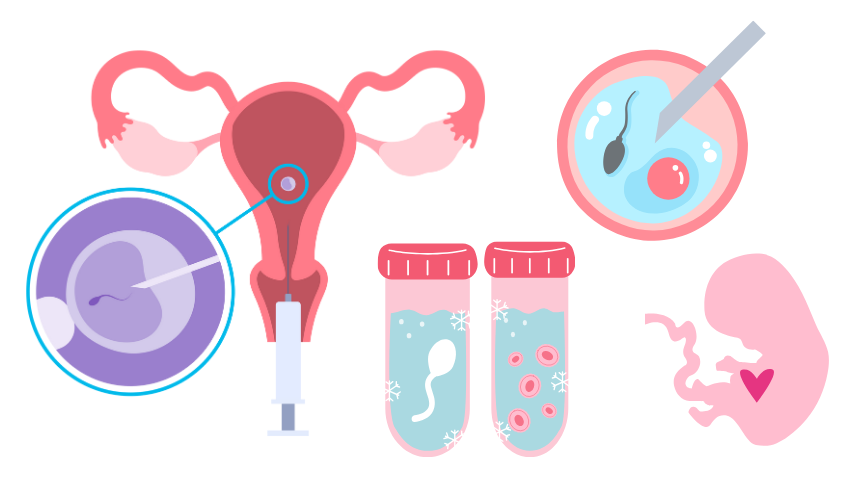Can You Undergo IVF After Menopause?

Getting pregnant is not always as straightforward as it may seem. However, advancements in fertility technology have given people more options when it comes to reproduction.
According to the World Health Organization (WHO), about one in six people experience infertility globally. These people greatly benefit from services like in-vitro fertilization (IVF). It’s also more common these days for people to wait until they’re older to have children.
But, is there such a thing as too late when it comes to IVF? Can people who have reached menopause still use IVF? It’s time to find out!
About IVF
Before we explore the question of the day, let’s have an IVF refresher. IVF, or in-vitro fertilization, is an assisted reproductive technology (ART), a fairly complex one at that.
IVF takes an average of four to six weeks, but many people have to undergo several cycles. It involves using hormones to stimulate egg maturation before they are retrieved, fertilized, and transferred.
Here’s a summary of the main steps of IVF:
- Estrogen or birth control pills are often used first to help regulate the timing of your menstrual cycle.
- Ovarian stimulation injectable hormones are taken for eight to fourteen days to help encourage egg maturation. Your progress is monitored through ultrasounds and blood tests.
- The egg retrieval is typically done under mild anesthesia, 36 hours after your final hormone injection known as the “trigger shot”. Your provider guides a thin needle into your ovaries via your vagina. There is a suction device connected to the needle that pulls the eggs out of each follicle.
- After retrieval, your fertility specialist will attempt to fertilize all the mature eggs that have been collected. This can be done with your partner’s sperm or sperm from a donor. An average of 70% of mature eggs that have been collected will fertilize and become an embryo.
- Embryos will develop over the next five to six days, with about 50% developing to the blastocyst stage.
- Embryo transfer is done using fresh (three to seven days after egg retrieval) or frozen embryos. Frozen embryo transfers are more likely to be successful.
- A successful embryo transfer results in pregnancy and hopefully a live birth.
About 5% of people experiencing infertility will use IVF. People may also use it if they are queer, hoping to have a baby without a partner, or even after their normal fertility window has closed.
Is IVF possible after menopause?
The short answer is yes, IVF is possible after menopause, and there have been a number of women who have done it successfully. The caveat is that they are not able to use their own eggs.
Once someone reaches menopause, they typically have less than 1,000 eggs left. Because of this, they’ll have to use frozen donor eggs, meaning they’ll skip the first three steps of the IVF process.
Donor eggs can come from someone they know, like a friend or family member. They may also be sourced from an egg donor program. You can be connected to egg donor programs through your fertility clinic. Sperm can come from your partner or from a donor as well.
If all goes well and you’re able to obtain healthy embryos, then you can proceed with the embryo transfer and possible pregnancy.
Why people undergo IVF after menopause
IVF is an expensive procedure and can take multiple rounds before a successful pregnancy. So, why would someone wait to try it until after menopause?
Here are just a few of the many potential reasons:
- Prioritized their career in their reproductive years
- Went through early menopause due to health reasons
- Faced fertility issues earlier in life
- Waited to find a partner
- Never found a partner but still wanted to become pregnant
- It was simply the right time
Risks of IVF after menopause
IVF and pregnancy have inherent risks no matter what age you are. Are there specific risks for postmenopausal women?
One study found that mothers aged 40 and older had significantly higher risks of having babies with low birth weight and are preterm. They also had an increased risk of gestational diabetes, cardiac disease, preeclampsia, and maternal and neonatal morbidity. It’s important to note that this study followed deliveries in the United States from 1997 to 1999, so it is a bit dated and may not reflect advancements in healthcare.
Another study from Columbia University Medical Center followed women over the age of 50 who had IVF treatment and found that post-menopausal women and their babies had good outcomes comparable to those under age 42.
There is limited research on IVF after menopause, which is why it’s important to talk to your healthcare provider about the best option for you. Potential risks also depend on someone’s age and any underlying health conditions they may have. If you’re considering IVF after menopause, you’ll likely have to undergo counseling and physical evaluations.
Your decision
There tends to be a lot of controversy around IVF after menopause, as there is with women’s health in general. As with anything having to do with reproductive health and fertility, undergoing IVF after menopause is a personal choice. If someone has the resources and the desire to go this route, then that is their decision to make.
If you are close to reaching menopause and want to explore your fertility options, we advise seeing a fertility specialist to see if you may still be able to have an egg retrieval. Shop around to find a provider who understands your situation and unique needs.

Natasha (she/her) is a full-spectrum doula and health+wellness copywriter. Her work focuses on deconstructing the shame, stigma, and barriers people carry around birth, sex, health, and beyond, to help people navigate through their lives with more education and empowerment. You can connect with Natasha on IG @natasha.s.weiss.



